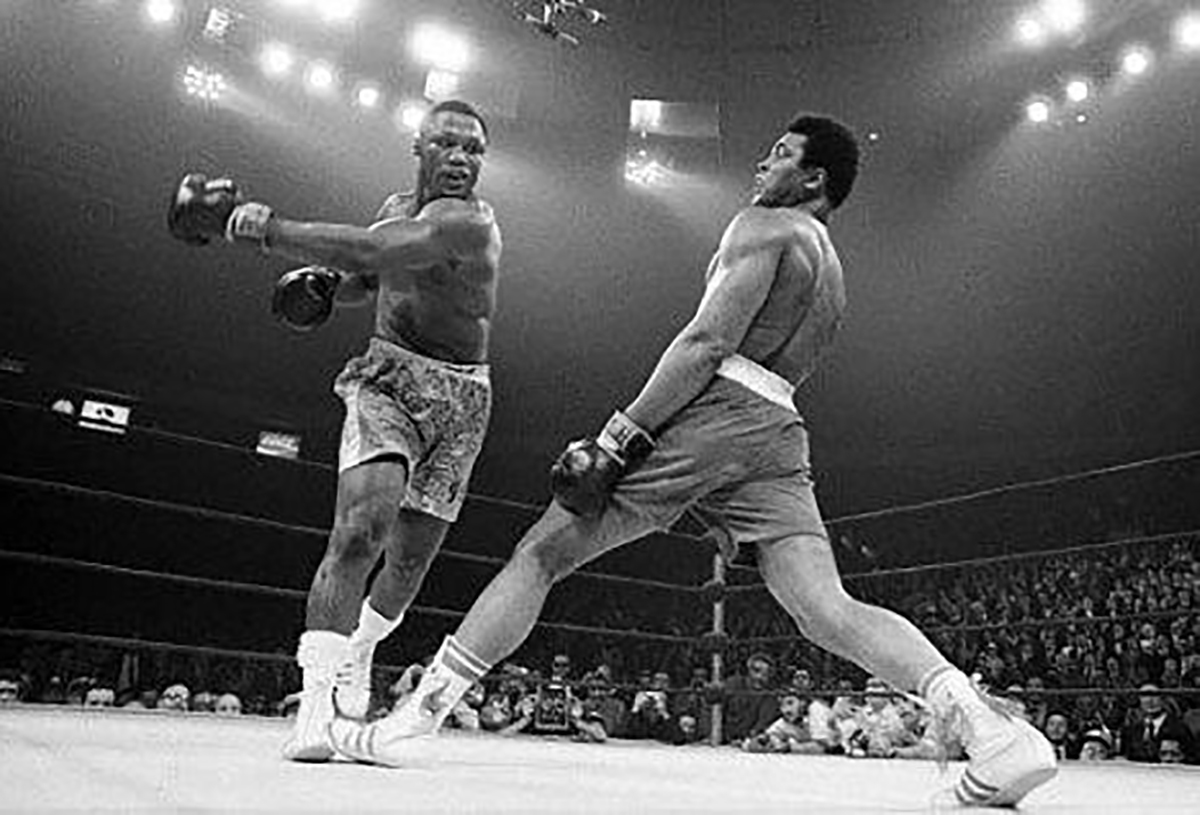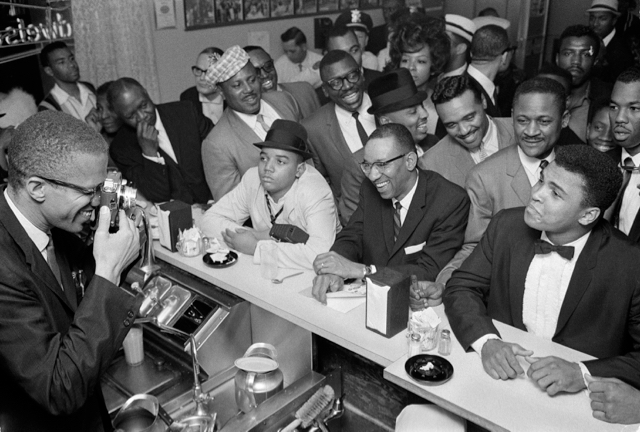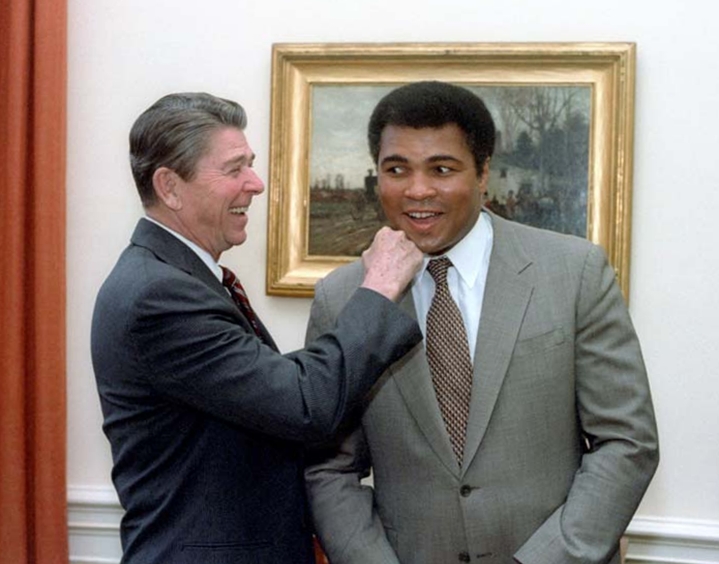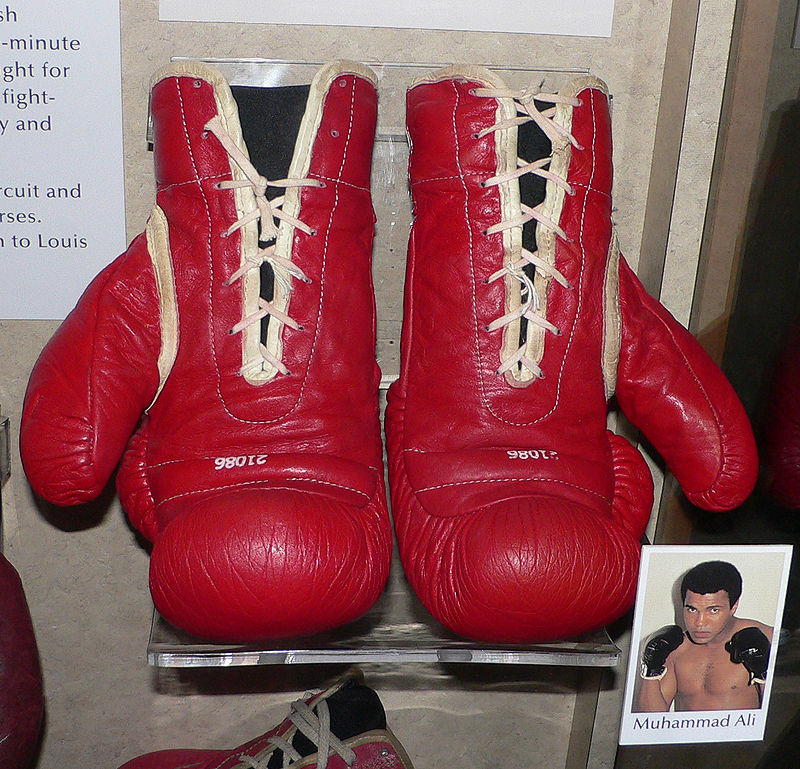
On Friday, June 10, over 100,000 fans lined up along the streets of Louisville, KY and chanted “Ali Ali” as the hearse carrying legendary boxing icon Mohammad Ali’s cherry-red casket made its way to the Cave Hill National Cemetery. The 74-year-old, who had been battling Parkinson’s disease for 32 years, passed away at a hospital near Phoenix on June 3, 2016. Ali was famous not only for his athletic prowess but also for his social activism.
Born on January 17, 1942, in Louisville as Cassius Marcellus Clay, Ali’s boxing career began accidentally at the age of twelve after his bike was stolen. Joe Martin, a local police officer who was also a boxing trainer, suggested Clay learn to fight before tackling the thief and took the young boy under his wing. Within six weeks, he had won his first boxing match! By 18, Clay had two Golden Gloves and two Amateur Athletic Union national titles under his belt. He also brought home the gold medal in the light heavyweight category at the 1960 Summer Olympics Games in Rome.

Soon after, Muhammad Ali, who was still known as Cassius Clay, turned professional. Business owners in his hometown recognized his talents and offered to back him with an unprecedented 50-50 split of all winnings. However, the boxer was not very well regarded outside Kentucky, where he was often referred to as “the Louisville Lip” for bragging about his abilities publicly. But as everyone soon discovered, Clay’s confidence in his boxing abilities was well-deserved.
In 1964, at just 22 years old, Clay stunned the world by beating heavyweight champion Sonny Liston, in a sixth-round technical knockout. Upon winning, the boxer proclaimed, "I am the greatest! I am the greatest! I'm the king of the world.” Soon after, he changed his name to Muhammad Ali and began referring to himself as “The Greatest," — Something the agile and energetic boxer proved over and over again.
Over his illustrious career, Ali won 56 of the 61 matches he fought, including three world heavyweight championships in 1964, 1974, and 1978. He is also the only boxer to have defeated an undisputed champion in his weight class, three times.

But Ali’s legacy went beyond the boxing ring. He grew up in the 1960’s when African Americans still faced segregation. Despite his success in the boxing arena, Ali was no exception and was often denied service at restaurants, even in his hometown of Louisville.
After one such incident at the local soda fountain, the boxer allegedly threw his Olympic gold medal into a river and joined the Nation of Islam. Led by men such as Malcolm X, the American Muslim group took a much more radical approach to achieving equal rights than Civil Rights leaders like Martin Luther King Jr., who advocated peaceful protests.
Ali kept his affiliation with the group and conversion to Islam a secret until he won the heavyweight title against Liston. Following the remarkable victory, the boxer not only revealed his new faith, but also dropped the name Cassius Clay for Muhammad Ali, given to him by Elijah Muhammad, the founder of the Nation of Islam.

In 1967, Ali sparked further controversy by refusing to fight in the Vietnam War. He believed the battle against racism at home was more important than what Americans were trying to achieve overseas. The decision to ignore the draft cost Ali his boxing title and banned him from the sport for three years. His five-year prison sentence for defying the call to duty was fortunately pardoned upon appeal.
The loss of his title and millions of dollars in potential earnings did not faze Ali, who remained steadfast in his belief and even took to the lecture circuit to talk about the hypocrisy of denying African Americans individual rights in America while demanding they fight for the country abroad. Though his stance alienated many conservatives, including athletes and sports journalists, it did win him the praise of antiwar activists and black nationalists.

In 1981, after losing to 27-year-old Jamaican boxer Trevor Berbick in a unanimous 10-round decision, Ali decided to hang up his boxing gloves and retire. But the 39-year-old was not about to disappear from the limelight. Despite being diagnosed with Parkinson’s disease in 1982, he became an advocate for humanitarian causes and was even sent to help with the release of American hostages in Iraq in 1990. Ali also met with many world leaders and conducted goodwill and charitable missions worldwide. His hard work and efforts earned him numerous accolades, including the prestigious Presidential Medal of Freedom in 2005.
As the years went by, Parkinson’s took its toll on Ali’s body causing his motor skills to decline and severely limiting his movement and speech. The boxing icon spent the final years of his life in Arizona with his fourth wife, Yolanda, who he married in 1986. While he may be no longer with us, Muhammad Ali will forever be remembered by the world as “The Greatest,” a philosophy that came not out of pride, but from belief and confidence in his abilities.
Resources: Nbcnews.com,blog.education.com,cnn.com, wikipedia.org, history, com